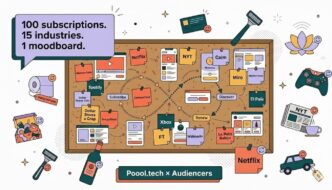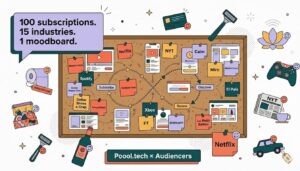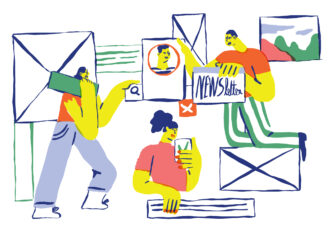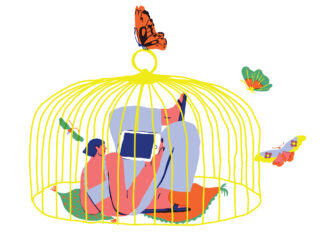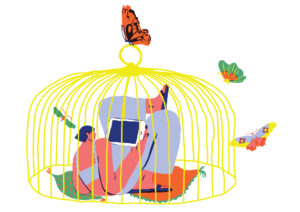

30% greater pageviews, 45-50% greater completions, more partnerships with other news publishers… Earlier this year, The Conversation created a small team whose aim is to create content, products, experiences that are more valuable to people. The results are extraordinary. And the team achieved them by being laser-focussed on their audiences.
In this short piece, Khalil A. Cassimally, Head of Audience Insights at The Conversation explains the approach his team took so you can replicate it if you want. The best bit? Members of the team have become internal advocates of this audiences-informed approach centred on creating value for people. We’re now in the process of creating more teams across several of our newsrooms all over the world 🙌🏽
Trust in news is abysmal.
Globally, more people do not trust news at least some of the time than trust it. Only 42% say they trust most news most of the time. And it’s worse in certain countries: 29% in France, 26% in the US.
Why the distrust? Research points to doubts about the media’s good intentions – many people believe the media is subjected to undue political influence, others believe it puts its own commercial interests above society’s. Entangled in all this is fake news, deepening polarisation, infodemic, doom and gloom coverage …
The point is it’s bad. So, how do we gain people’s trust? How do we prove to them that they can trust us? One way is to double down on being valuable to people. The more valuable we are to people, the more trustworthy we become. (See sidenote 1 below for more context.)
How can we be more valuable to people?
The Conversation created a small, multi-disciplinary team based in our UK newsroom whose entire aim is to provide more value to people. (See sidenote 2 below for benefits of such small teams.) The team’s premise is that value is grounded in better serving our users, which in turn relies on better understanding our users.
Here’s what the team did/is doing:
- Develop a better understanding of the needs, interests and problems of specific audiences
- Produce audiences-informed content, products, experiences, addressing those needs, interests and problems
You can read a more detailed breakdown of the work here.
Here’s what the team achieved:
1. Producing audiences-informed articles that are more valuable to users
One of the projects the team works on is Quarter Life, a series of articles squarely aimed at younger professionals based in the UK. It was launched in early 2022 and has been so successful that it’s now a permanent series.
Quarter Life articles are audiences-informed – their commissioning are informed by the needs, interests and problems of the target audience, younger professionals based in the UK.
It became very clear very quickly that Quarter Life, and by extension audiences-informed articles, was valuable to its target audience.
Completions are up 45-50%. A way greater portion of people who land on a Quarter Life article read the whole article compared to those who land on other content. People taking the time to read whole articles is a proxy to how much value they’re finding in the content.

2. Increasing viewership to those valuable audiences-informed articles
The team does not optimise for pageviews when commissioning Quarter Life articles. And yet, Quarter Life articles have 29% greater pageviews than other content.
The increased viewership may be linked to: word of mouth, social media traction, and perhaps more importantly, greater interest from news publishers in republishing Quarter Life articles.
On the back of Quarter Life’s success, the team is creating partnerships with other publishers to increase the reach of the series. Fast Company now republishes every Quarter Life article on their website. Público, a newspaper of record in Portugal, is translating, narrating and republishing articles in Portuguese. Quarter Life articles have also been republished by CNN, World Economic Forum and more.

3. Encouraging more editors and more newsrooms to embark on a similar journey
Many members of the team have become internal advocates of this audiences-informed approach that focusses on being more valuable to people. The result? More small, multi-disciplinary teams are in the process of being created within multiple newsrooms of The Conversation.
That’s more people soon getting more value from our content, products, experiences. That’s more trust being built.
Join the movement
Focussing on value, focussing on audiences was only possible thanks to the Table Stakes Europe programme. It provided the team with tools, techniques and guidance over the course of 2022. Table Stakes Europe has been a real game-changer for us. The good news is that you can participate in Table Stakes Europe too.
—
Sidenotes:
1. Value is a broad term. A deeper exploration reveals several factors behind value and trust.

2. A great way to try something new is by creating a small, multidisciplinary team and tasking them with it (while also supporting them and advocating for them). So many benefits.



